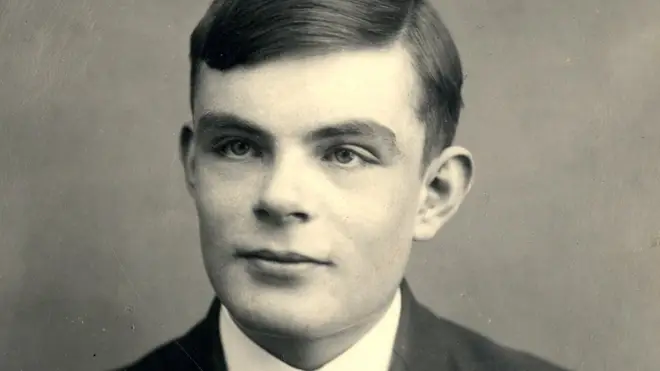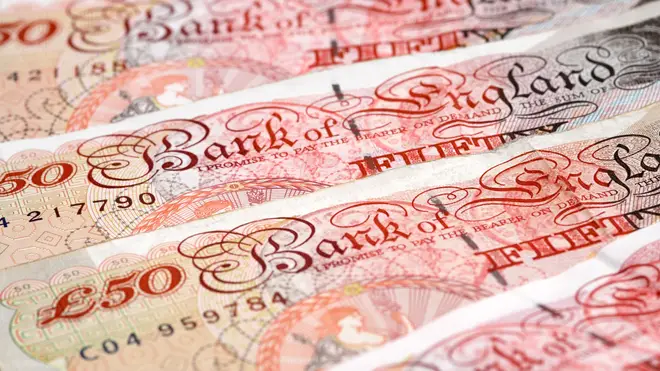Alan Turing will be the face on the new £50 note
15 July 2019, 11:29 | Updated: 15 July 2019, 12:36

Codebreaker Alan Turing will appear on the new design of the Bank of England's £50 note
The computer pioneer is known for his code-cracking work that helped the Allies win World War Two.
The £50 note will be the last of the Bank of England series to switch from paper to polymer, when it enters circulation by the end of 2021.
The note is the least used in daily transactions of Brits, but there are still 344 million notes in circulation, with a combined value of £17.2bn.
"Alan Turing was an outstanding mathematician whose work has had an enormous impact on how we live today," said Bank of England governor Mark Carney.
"As the father of computer science and artificial intelligence, as well as war hero, Alan Turing's contributions were far ranging and path breaking. Turing is a giant on whose shoulders so many now stand."

Who was Alan Turing?
Turing's work helped the Allies read German Naval messages enciphered with the Enigma machine.
He also played a hugely important role in the creation of early computers, at the National Physical Laboratory and at the University of Manchester.
In 2013, he was finally given a posthumous royal pardon for his 1952 conviction for gross indecency, where he was chemically castrated. He had been arrested for having an affair with a 19-year-old man from Manchester.
More recently, Benedict Cumberbatch portrayed him in the Oscar-winning movie The Imitation Game.
The Bank asked the public for suggestions of scientists whose portrait would appear on the £50 note. Over six weeks, the Bank received 227,299 nominations, with 989 eligible scientists.
A shortlist included Mary Anning, Paul Dirac, Rosalind Franklin, William Herschel and Caroline Herschel, Dorothy Hodgkin, Ada Lovelace and Charles Babbage, Stephen Hawking, James Clerk Maxwell, Srinivasa Ramanujan, Ernest Rutherford, Frederick Sanger and Alan Turing.













